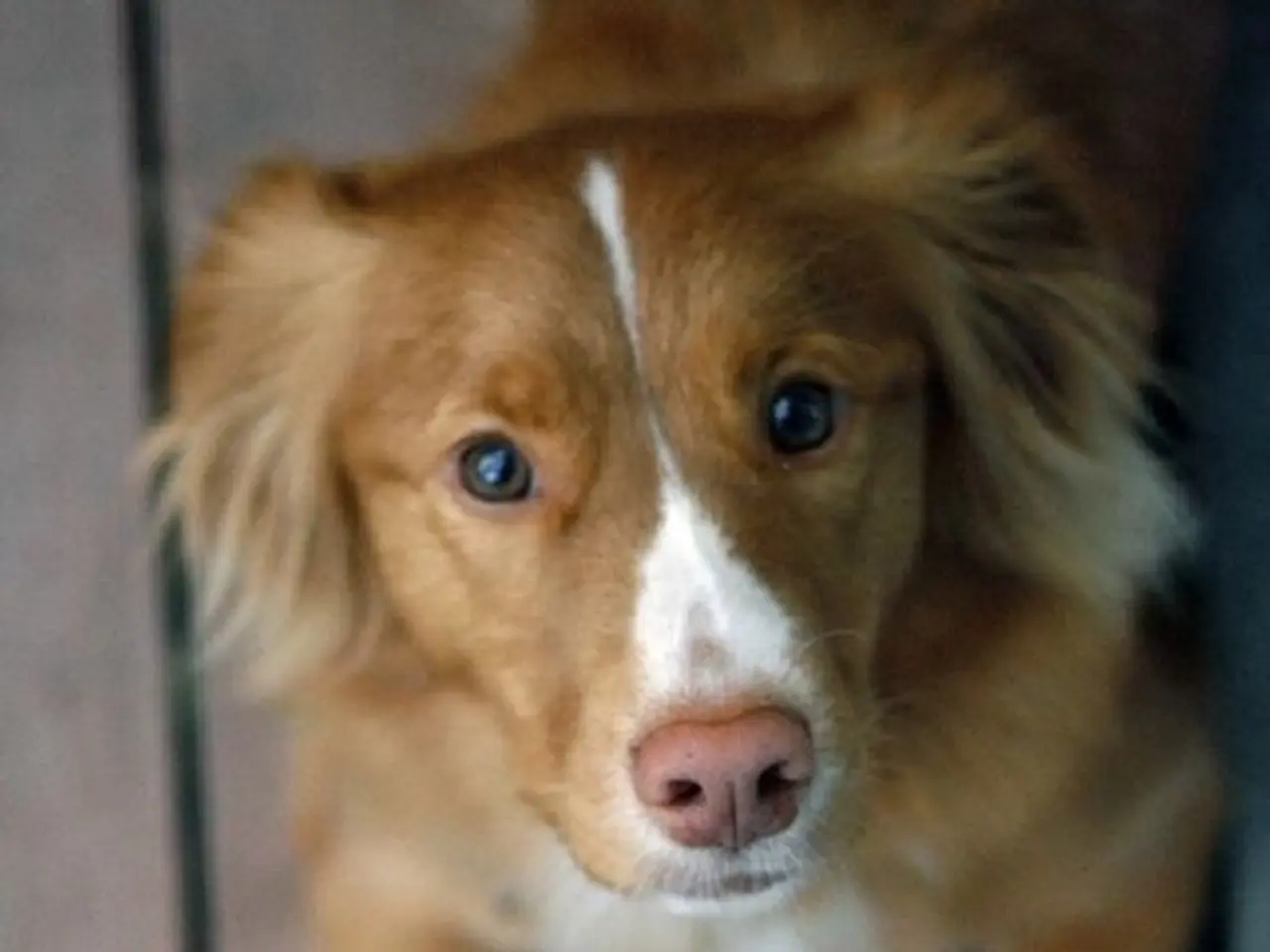Is it Normal for Dogs to Consume Cat Feces? Are There Any Dogs That Avoid This Behavior?
Dogs, much like their human counterparts, require a balanced diet, regular exercise, and mental stimulation to maintain good health. However, a behaviour that is concerning for many pet owners is coprophagia - the consumption of feces. This habit is common in dogs and can be influenced by various factors, including instinctive behaviour, nutritional deficiencies, boredom, or behavioural issues [2][4].
When it comes to eating cat poop, the risks are particularly high. This behaviour can increase the risk of health issues for dogs, as cat feces may contain intestinal parasites, harmful bacteria, or residual medications that are dangerous for dogs [2][4].
The reasons behind this behaviour are partly instinctual. Mother dogs eat their puppies’ waste to keep the den clean and reduce predator scent, and some dogs retain this tendency. Puppies may also explore with their mouths, including eating feces [2]. However, eating feces from other species like cats poses increased health risks due to potential pathogen transmission and toxins [4].
Health risks of coprophagia include exposure to parasites such as worms, bacterial infections, and ingestion of harmful substances, which can lead to gastrointestinal upset, infections, or systemic illness. Because cat feces may contain components specifically harmful to dogs, preventing access is important to protect their health [4].
To deter dogs from eating cat feces, several measures can be taken. Regularly cleaning the cat's litter box can help reduce the temptation. Additionally, placing the litter box in a room your dog can't enter can prevent access. Covered litter boxes or high shelves can also reduce the temptation for dogs to eat cat feces. In some cases, a baby gate with a small opening can allow the cat through while keeping your dog out [1].
It's important to note that if a dog's poop-eating habit is new or seems compulsive, it may signal an underlying medical condition. Gastrointestinal problems, parasites, or nutritional deficiencies should be ruled out by a veterinarian [3]. A dog trainer can also help reinforce good behaviour using positive reinforcement.
Puppies and young dogs are especially vulnerable to infections from feces because their immune systems are still developing. Therefore, it's crucial to address coprophagia in these young animals promptly.
In summary, coprophagia is common in dogs due to inherited and environmental factors but eating cat poop is risky due to possible parasites and toxins, making this behaviour potentially harmful to their health [2][4]. By taking preventative measures and seeking professional help when needed, pet owners can protect their dogs from the potential health risks associated with coprophagia.
References:
- American Kennel Club. (n.d.). Coprophagia in Dogs. Retrieved from https://www.akc.org/expert-advice/behavior/coprophagia-in-dogs/
- Scott, D. W., & Fuller, D. (2005). Ingestion of feces by dogs: an overview. Veterinary Clinics of North America: Small Animal Practice, 35(6), 1077-1092.
- VCA Hospitals. (n.d.). Coprophagia in Dogs. Retrieved from https://vcahospitals.com/know-your-pet/coprophagia-in-dogs
- Williams, C. (2019). Coprophagia in Dogs: Why Do Dogs Eat Poop and How Can You Stop It? PetMD. Retrieved from https://www.petmd.com/dog/behavior/evr_dg_coprophagia-why-dogs-eat-feces-and-how-can-you-stop-it
- In addition to affecting their health, the consumption of cat feces by dogs can pose increased risks due to potential pathogen transmission and toxins, which can lead to a variety of health issues including gastrointestinal upset, infections, or systemic illness.
- It is important for pet owners to be aware that eating feces from other species, such as cats, poses added health risks for dogs, especially for puppies and young dogs whose immune systems are still developing.
- To maintain the health and wellness of their pets, owners should consider taking preventative measures such as regularly cleaning the cat's litter box, placing it in a room the dog cannot enter, or using covered litter boxes or high shelves to limit the dog's access to cat feces.




